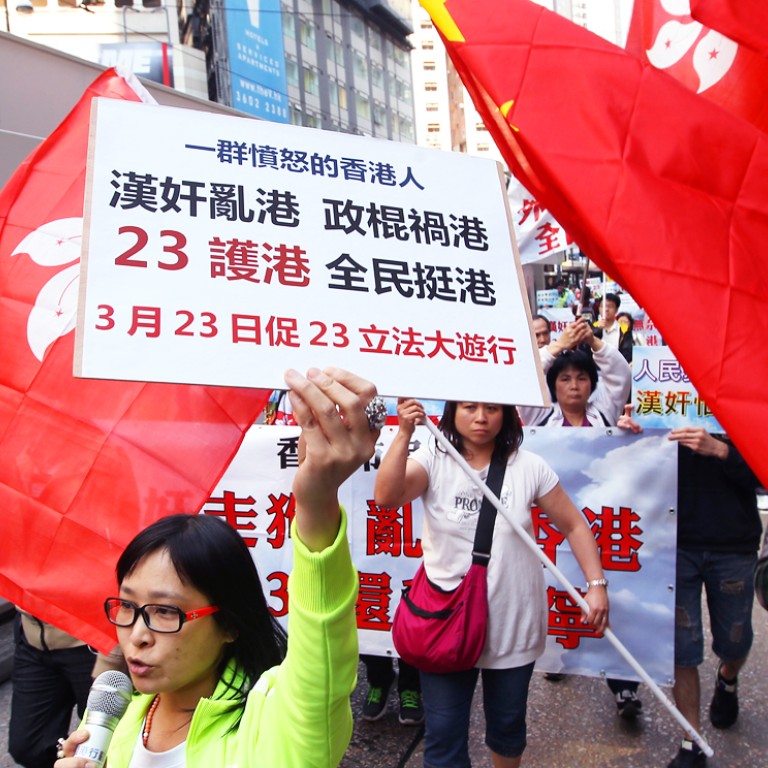
Hong Kong must find a way to settle the Article 23 debate on national security law
Like it or not, the Article 23 issue is in the spotlight again. This time the controversy has been stirred by a local deputy to the National People's Congress.
Like it or not, the Article 23 issue is in the spotlight again. This time the controversy has been stirred by a local deputy to the National People's Congress, who said Beijing could impose the mainland national security law on Hong Kong instead of the city legislating its own code as stipulated in the Basic Law. The eagerness to introduce the law in some quarters is to be expected. For more than 17 years, the provision seeking to prohibit subversion and other security-related offences has yet to be written into our statute book. But the latest outcry shows the people are still wary of such a law, even though they know that the issue cannot be ignored indefinitely.
Against the backdrop of the Occupy protests and a stern warning by the city's leader against pro-independence sentiments, the call for extending the state security law under Article 18 has, unsurprisingly, fuelled much speculation. The chief executive has sought to clear the air, saying he has no plan to enact the law. The swift clarification is to be welcomed.
Whether the Basic Law allows for the state security law to be enforced here is open to debate. Article 18 states that national laws for use in Hong Kong shall be confined to those relating to defence and foreign affairs, as well as matters outside the limits of its autonomy. To use it for extending the mainland security law would seem at odds with Article 23, which stipulates that Hong Kong shall enact laws on its own in relation to treason, secession, sedition, subversion, theft of state secrets and political links with foreign bodies. It should be noted that the idea has not won broad support in the pro-Beijing camp. Basic Law Committee vice-chairman Elsie Leung Oi-sie also cast doubt on its feasibility. It remains unclear whether the proposal is more a tactic to push the government to legislate on its own. What is certain is that Hong Kong has the constitutional duty to outlaw acts that jeopardise national safety. That the issue remains a hot potato 12 years after it was shelved following a huge public outcry speaks volumes about just how sensitive this matter is. Nevertheless, face it we must.

